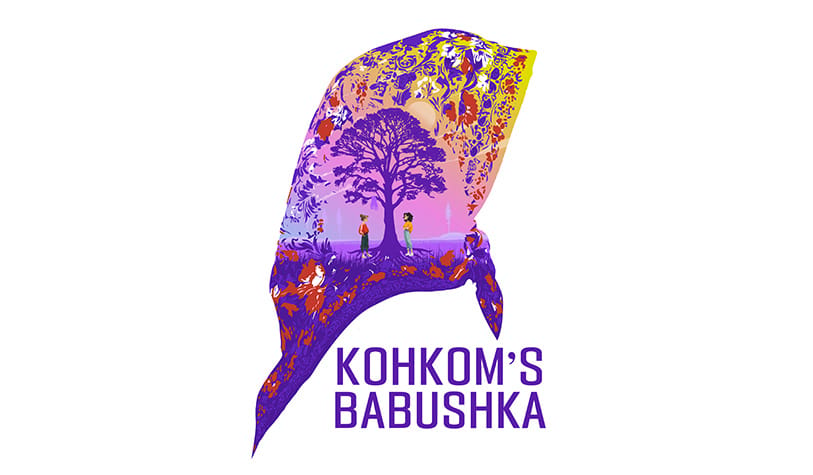
Running Toward the Storm: A Review of Kohkom’s Babushka by Lianna Makuch and Joleen Ballendine
Reviewed by Jeremy Allard
Kohkom’s Babushka, a family-friendly production written by Lianna Makuch (Ukrainian-Canadian) and Joleen Ballendine (Métis) and developed in collaboration with Pyretic Productions, Pemmican Collective, and Punctuate! Theatre, premiered on October 18th at the Banff Centre. The play is loosely based on a children’s book of the same name, written by Marion Mutala (Ukrainian), illustrated by Donna Lee Dumont (Métis), and published by GDI Press in 2017. Like the book, the play is “a celebration of Métis and Ukrainian cultures,” and, like the book, it is a Metis-Ukrainian collaboration through and through.
We attended a matinee preview at the Banff Centre’s Margaret Greenham theatre on the 15th, and stayed for a 20 minute “talk-back” after the show with cast and crew—a nice way to get a bit more background on the production. Despite the early showtime, the small theatre was nearly full.
The play follows Natalia and Paulette, two tweens, one Ukrainian, one Metis, who grew up next door to each other and shared a friendship that, until recently, seemed unbreakable. About a year before the play starts in earnest, Natalia changed schools; Paulette doesn’t feel welcome around Natalia’s new friends, and, slowly but surely, hurt has piled up between them. Now, the two have mostly stopped speaking to each other. When the old chestnut tree they played under as children is slated for removal, Paulette’s Kohkom tries to convince them to work together to save it. When they refuse, they’re whisked back in time to learn a lesson about their shared history. Trapped in the 1890s, the girls find themselves cast in the roles of their own ancestors, and facing pressing hardships. In the process of working together to find a way home, they gradually forget their differences and become friends once again. But forgetting differences is not the same as acknowledging, or making amends for, harms. And the past still has more to teach them before they’ll be allowed to return home.
